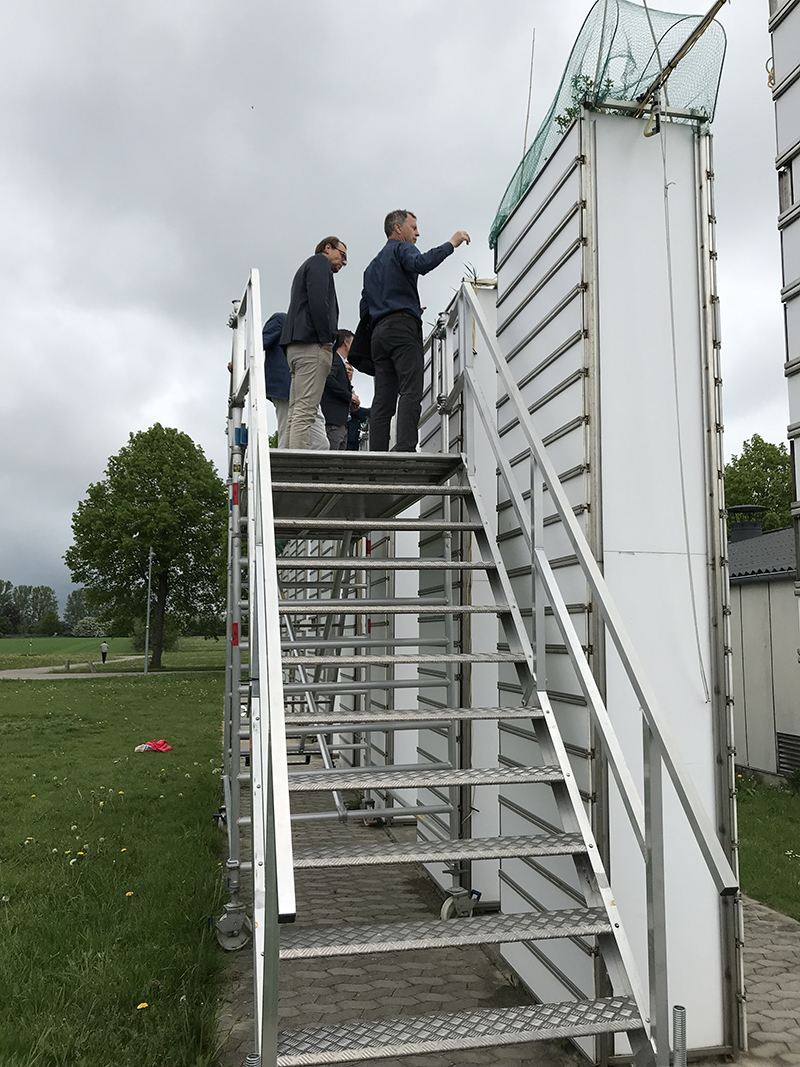Deep Roots – connect Denmark with Australia
The Deep Frontier project has collaborated internationally throughout the project period. Two Australian researchers visited the project in December 2019 – January 2020 and carried out research using the unique facilities for studying deep roots built at Højbakkegaard: Dr. John Kirkegaard, Chief Research Scientist, and Dr. Julianne Lilley, Crop Physiologist, both from CSIRO Agriculture & Food (The Commonwealth Scientific and Industrial Research Organisation) based in Canberra, ACT, Australia.

Brassica root development
John Kirkegaards’ research in Denmark focused on the root development of Brassica species (winter oilseed rape). He summarizes the work in brief as follows:
-The deep rooting of Brassica species (canola or oilseed rape) is valuable in Australia because the roots can reach deep stored water late in the season to support yield in a dry environment. In Denmark the deep roots and capacity for N uptake also helps to control the leaching of nitrate. Therefore, we were interested to look at the pattern of root growth in winter, when you would expect the root growth to slow due to colder temperatures. In Australia, we can also graze off the leaves in winter, which might also be expected to slow the root growth due to less photosynthate available for root growth. The Deep Frontier facilities in Denmark allowed us to follow root growth in winter, and we saw that root growth in the towers continued downwards and roots expanded in each layer through the dark, and cold winter period. In the field, we did not see much winter root growth, but this may have been due to a high water table during this wet winter. My work in both facilities is part of longer-term studies with PhD and Postdoctoral Fellows at Højbakkegaard that will follow the roots and their activity through the rest of the growing season.
John Kirkegaard gave a presentation of his findings at the Deep Frontier international workshop in November 2019. See presentation here.
Deep roots and the consequences for N and water dynamics
Julianne Lilley focused on validating APSIM models during her stay in Denmark working in the Deep Frontier project. Here she described the scope of her work:
Simulation models can be used to assist agronomic research, farm decision-making and crop breeding. APSIM (Agricultural Production Systems Simulator) allows models of crop and pasture production, residue decomposition, soil water and nutrient flow, and erosion to be configured to simulate various production systems (e.g. crop sequences and intercropping), using different soil and crop management rules. The aim of my visit was to validate the APSIM model against measured canola and wheat experimental data on nitrogen use efficiency conducted at Taastrup in 2011/12 and 2012/13 seasons. Using the APSIM model would allow investigationsof both N and water dynamics in the system over the long term as well as to explore the impact of introducing crops with root systems that explore the soil to a different extent. For example, root systems of winter cultivars may grow much deeper than spring cultivars, which have a short growth duration, and some species also have quite different root architecture. We achieved good agreement between the observed measurements and simulation of nitrogen uptake, biomass and yield for the wheat and canola crops. Soil data was less detailed and more refinements will be required to improve the accuracy of the soil water and soil nitrogen movement, which is important for the next step of conducting long-term simulation analysis.
The benefits of hosting guest researchers
The Deep Frontier facilities are unique worldwide and offers an opportunity for international researchers to collaborate in the exploration of the potential of deep roots and deep-rooted crops. The number of researchers globally that engage in the exploration of deep rooting is limited. Therefore, it is of great value to collaborate across the globe to move this frontier research forward. Professor Kristian Thorup-Kristensen, Crop Science, University of Copenhagen, explains, that guest researchers contribute with valuable knowledge and results in relation to the research questions of Deep Frontier: ‘Having highly esteemed researchers visiting the project strengthens our research environment and provides important inputs to both the formal research work and more informal discussions around the potential of deep rooting.’